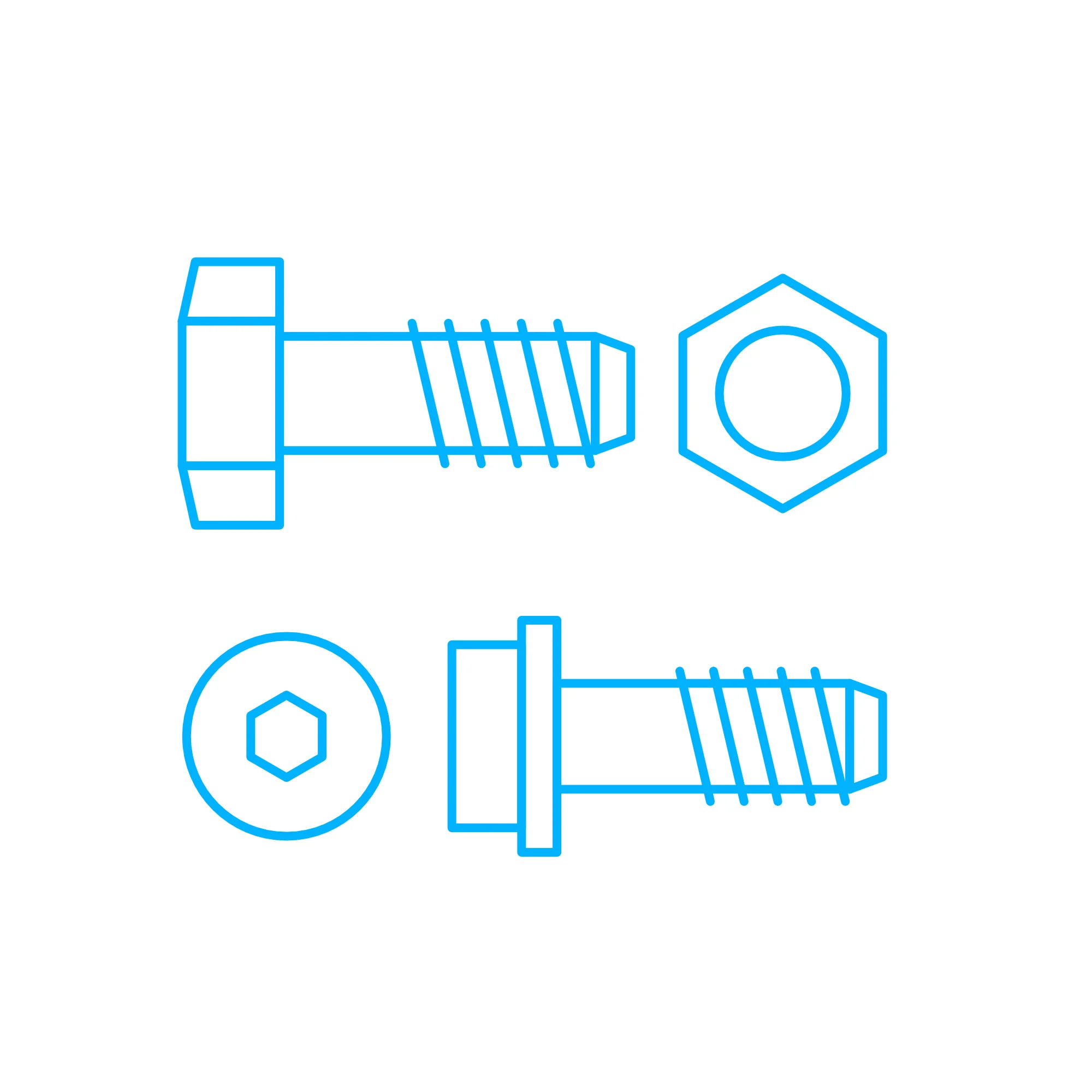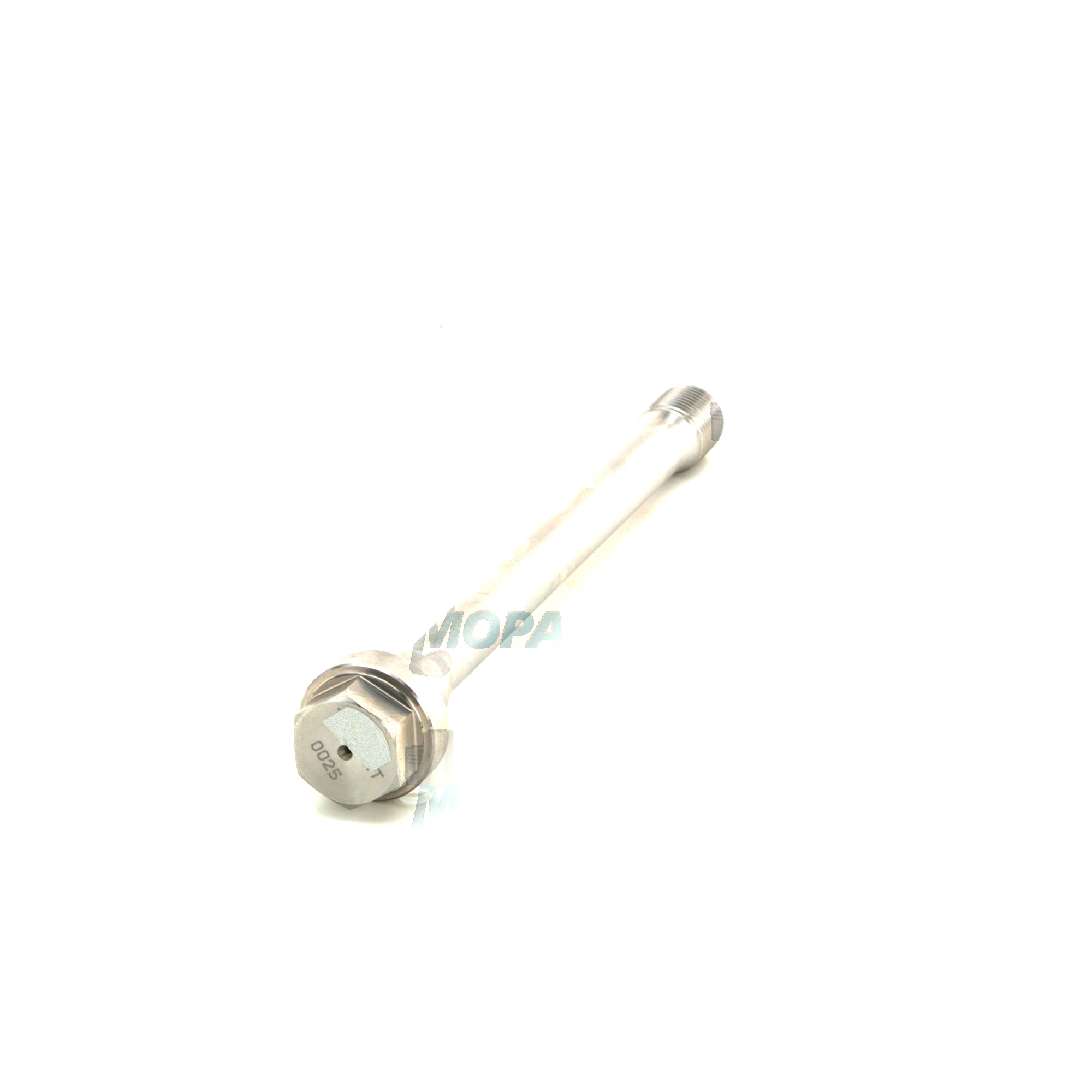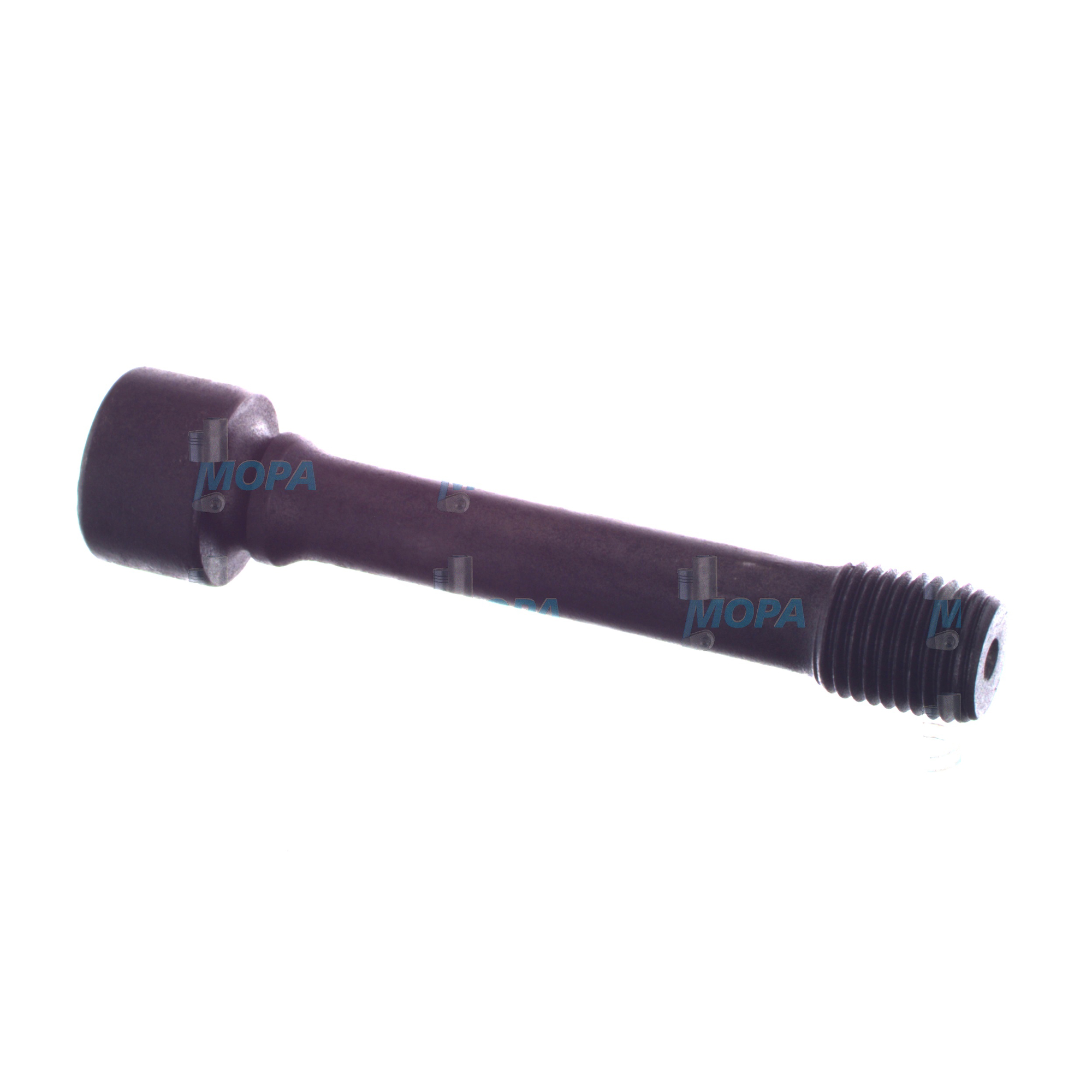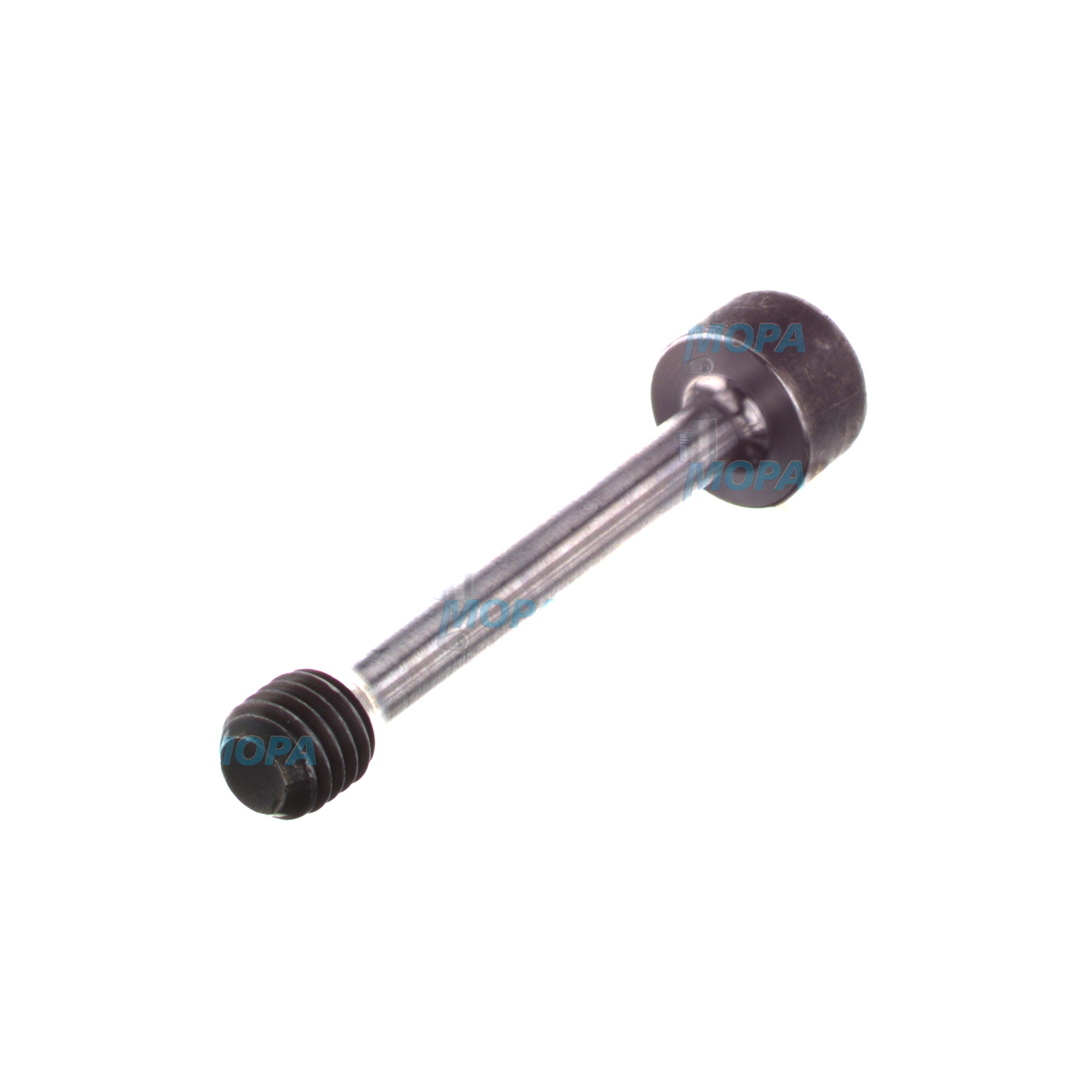STRESS BOLT Screws for Marine, Diesel and Gas Engines
Screws are precision fasteners that convert applied torque into clamping force, securing critical engine assemblies under extreme thermal and dynamic loads. In large marine engines, high-speed diesel engines and stationary gas units, screws hold cylinder heads, main bearing caps, connecting rods, covers and auxiliaries in exact alignment. By maintaining consistent preload, they preserve sealing integrity, prevent micro-movement between components and protect the engine from premature wear. Within this category, STRESS BOLT designs are engineered to deliver controlled elongation and reliable preload, making them indispensable wherever performance, efficiency and safety converge.
Technical function of screws and STRESS BOLT in a diesel engine
In any reciprocating engine, the primary job of a screw or bolt is to generate a stable clamping force that counters combustion pressure, vibration and thermal expansion. When tightened to a specified torque or torque-angle, the fastener stretches elastically and acts as a spring. This preload keeps joint surfaces in compression so that gaskets seal, bearing caps remain seated and precision clearances are preserved. A STRESS BOLT in a diesel engine or marine engine is optimized for this role, featuring high-strength alloy steel, controlled heat treatment and precise thread geometry to achieve predictable elongation in the elastic range.
Because joint friction can vary with lubrication and surface finish, modern procedures often use torque-plus-angle methods or direct bolt-stretch measurement to dial in preload. Fine-pitch threads are common in high-load joints (e.g., connecting rods or cylinder heads) because they provide better resolution of clamping force and improved resistance to loosening. Surface treatments—such as phosphate and oil—stabilize friction coefficients, while coatings and stainless or alloy compositions combat corrosion, especially in salt-laden marine environments. In power-cylinder joints, STRESS BOLT marine engine fasteners work with multi-layer steel (MLS) or fire-ring gaskets to maintain combustion sealing across load cycles. For bearing caps, high-strength screws prevent cap fretting and keep bearing shells aligned, directly influencing oil film stability and efficiency.
- · High tensile strength (e.g., property class 10.9/12.9) for consistent preload
- · Controlled elongation for repeatable torque-angle tightening
- · Precision threads for accurate load distribution and reduced loosening
- · Heat- and corrosion-resistant materials/coatings for marine service
- · Traceable batches to support quality audits and maintenance planning
- · Compatibility with OEM parts specifications and tightening procedures
Why screws are critical to engine reliability and service life
Fasteners may be small, but they are central to engine integrity. Correctly specified and tightened screws keep the combustion chamber sealed, preventing blow-by and thermal hot spots that can damage pistons and cylinder liners. They maintain shaft and gear alignment, safeguarding bearings from edge loading and oil starvation. They lock structural interfaces so that vibration energy does not turn into fretting, abrasion or crack initiation at mating surfaces.
When screws wear, corrode, lose preload or fatigue, the result can be gasket failure, coolant or oil leakage, timing drift, bearing misalignment or catastrophic joint separation. Typical failure modes include thread galling, hydrogen embrittlement in improperly coated high-strength fasteners, and fatigue cracks at the first engaged threads due to stress concentration. Regular inspection, correct lubrication, adherence to specified tightening sequences and using STRESS BOLT OEM parts where required are essential practices to keep engines in spec across overhaul cycles.
Advantages of OEM spare parts suitable for screws and STRESS BOLT OEM parts
Using OEM spare parts suitable for screws ensures that metallurgy, thread tolerances, head geometry and surface finishes match the engine maker’s design intent. That precision translates into predictable clamp load, reliable torque-angle behavior and seamless integration with mating components such as cylinder heads, caps and housings. For buyers balancing performance targets, uptime and lifecycle costs, the benefits are clear:
- · Performance: Correct preload delivers stable combustion sealing and bearing alignment.
- · Reliability: Proven materials and heat treatment resist fatigue and corrosion under load.
- · Budget: Right-first-time fit reduces rework, leakage callbacks and unplanned downtime.
- · Service life: Consistent clamping protects gaskets, liners and bearings over long intervals.
- · Safety: Reduced risk of joint loosening in high-vibration diesel engine applications.
- · Compliance: Documentation and traceability support class and audit requirements.
For high-duty joints, selecting the specified STRESS BOLT OEM parts avoids preload scatter, minimizes friction variability and preserves the engineered safety margins built into the design. That means fewer surprises during commissioning and overhauls, and more predictable engine behavior under load.
MOPA: fast, secure supply of STRESS BOLT OEM parts for marine and diesel engines
MOPA is an experienced, reliable partner for OEM spare parts Screws. We specialize in sourcing and delivering STRESS BOLT OEM parts for diesel and gas engines with an emphasis on speed, quality and transactional security. Purchasers and technical teams benefit from responsive quotations, curated cross-references, batch traceability and logistics tailored to dockside schedules or plant downtime windows. Our team supports torque specs, tightening sequences and material alternatives where applicable, ensuring you receive the right screw or STRESS BOLT for your specific engine model and duty profile—on time and with full documentation.
Conclusion: Screws and STRESS BOLT components underpin engine performance
Screws are the silent enablers of engine performance, efficiency and safety, and STRESS BOLT solutions bring the controlled preload that demanding joints require. Choosing OEM spare parts suitable for Screws secures consistent clamping, reduces downtime risk and extends service life across marine, diesel and gas engine fleets.




